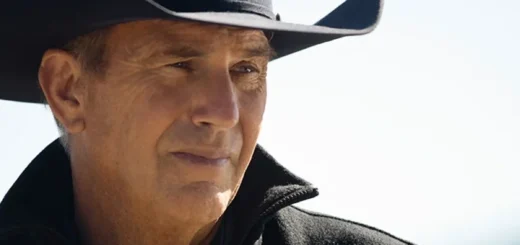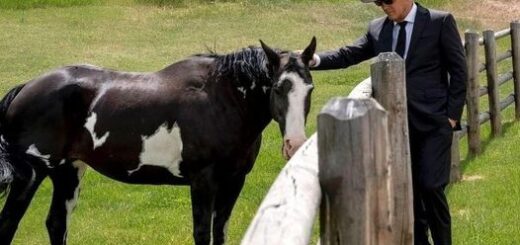Kevin Costner’s Horizon Could Be a Landmark — If It Gets Completed
As a place, Horizon doesn’t really exist yet — and neither, in a real sense, does the film. The first chapter of Kevin Costner’s ambitious four-part western epic, Horizon: An American Saga, premiered at Cannes last year and later opened in theaters. But after a lukewarm box office performance — and likely some behind-the-scenes studio politics — Warner Bros. scrapped plans to release the second chapter. That installment quietly premiered on the final day of the Venice Film Festival before vanishing again. As of now, it lacks both a release date and a distributor, though it recently resurfaced for its U.S. premiere at the Santa Barbara Film Festival.
Taken as a whole, Horizon is a massive creative undertaking — and if finished, it could stand as a monumental achievement. But right now, there’s a real possibility it could all fizzle out. Costner hasn’t yet filmed chapters three and four, and he’s already invested an enormous amount of his own money into the project. He’ll likely need more financing to finish what he started. Unlike most modern franchises split into multiple parts, Horizon feels like it can’t be judged until it’s complete. It’s not structured around cliffhangers — instead, it plays more like a cross-country train ride where the tracks are being laid down just ahead of the wheels. It’s intriguing, but there’s a lingering fear the journey may stop abruptly, leaving us stranded.
This concern becomes especially clear in Chapter Two. While it’s a powerful film, it’s also incomplete — arguably even more so than Chapter One. It deepens the emotional stakes but continues to withhold closure, making the need for future chapters feel more urgent. The first film opened and closed with massacres to reflect the brutal cycles of frontier violence. The second film shifts toward scattered, senseless killings, suggesting the violence is not just a reaction — it’s embedded in us. The story grows darker, and it leaves us submerged in that darkness.
If this chapter has a central figure, it’s Juliette Proctor (Ella Hunt), a refined woman whose civilized sensibilities clashed with the rugged life of the wagon train in the first film. Now, she’s trapped in a harrowing nightmare of abuse and silence, surrounded by people — including the overwhelmed leader Matthew Van Weyden (Luke Wilson) — who choose inaction. The quiet complicity of those around her adds emotional weight, and Costner’s restrained direction only heightens the horror. It’s clear now that Horizon isn’t some rousing throwback western — it’s something far more sobering.
Other major characters are similarly stuck. Costner’s own Hayes Ellison is caught in a thankless role as a lawman in a lawless outpost, trying to keep order amid rising chaos. Sienna Miller’s Frances Kittredge, still mourning the violent deaths of her husband and son, is attempting to build a future in the would-be town of Horizon — still more idea than reality. Meanwhile, Sam Worthington’s Lt. Trent Gephardt, a key presence in the first film, exits early here, off to fight in the Civil War — or film another Avatar sequel.
Some critics of the first chapter said it would have worked better as a television series. That argument remains valid here, as the film juggles numerous characters and plotlines with increasing frequency. Yet the format also invites a more cinematic approach to emotion and image. Costner and editor Miklos Wright don’t cut for conventional story beats; they cut based on mood and symbolic association. For some viewers, that may create a sense of drift. But it’s an intentional disorientation — a constant sense that something terrible could happen at any moment. In that way, it captures the unease of the Old West more authentically than most genre films.
While Chapter One struggled to establish emotional connection, Chapter Two delivers more intimacy. It’s a bleak and brooding chapter, focused on characters caught in cycles of failure, fear, and disillusionment. And it confirms that Costner is not interested in simply reviving the classic western. Instead, he’s crafting a layered portrait of America itself — its fractured families, false heroes, wayward leaders, and deep-rooted violence.
Horizon, it turns out, is less a grand fresco and more a rough, raw tapestry. Whether we’ll ever see the full picture remains uncertain — as uncertain as the dream of America the film seems to be chasing.


